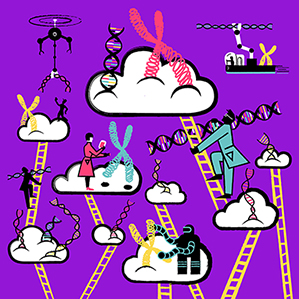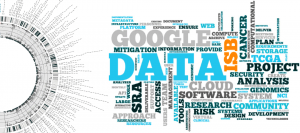Cancer Genomics Cloud: ISB and Google Featured in MIT Tech Review
 isbscience.org/news/2014/11/13/cancer-genomics-cloud-isb-and-google-featured-in-mit-tech-review/
isbscience.org/news/2014/11/13/cancer-genomics-cloud-isb-and-google-featured-in-mit-tech-review/
(Above illustration from MIT Technology Review.)
MIT Technology Review published an article about the launch of Google Genomics and included a mention of ISB’s new Cancer Genomics Cloud project. ISB received an up-to $6.5 million, two-year NIH contract in collaboration with Google and SRA International.
From the MIT Technology Review article:
The idea is to create “cancer genome clouds” where scientists can share information and quickly run virtual experiments as easily as a Web search, says Sheila Reynolds, a research scientist at the Institute for Systems Biology in Seattle. “Not everyone has the ability to download a petabyte of data, or has the computing power to work on it,” she says.
This article also was cited in The Scientist here.
Researchers interested in participating in the Cancer Genomics Cloud project, please visit cgc.isbscience.net.
Read more about ISB’s Cancer Genomics Cloud project:






